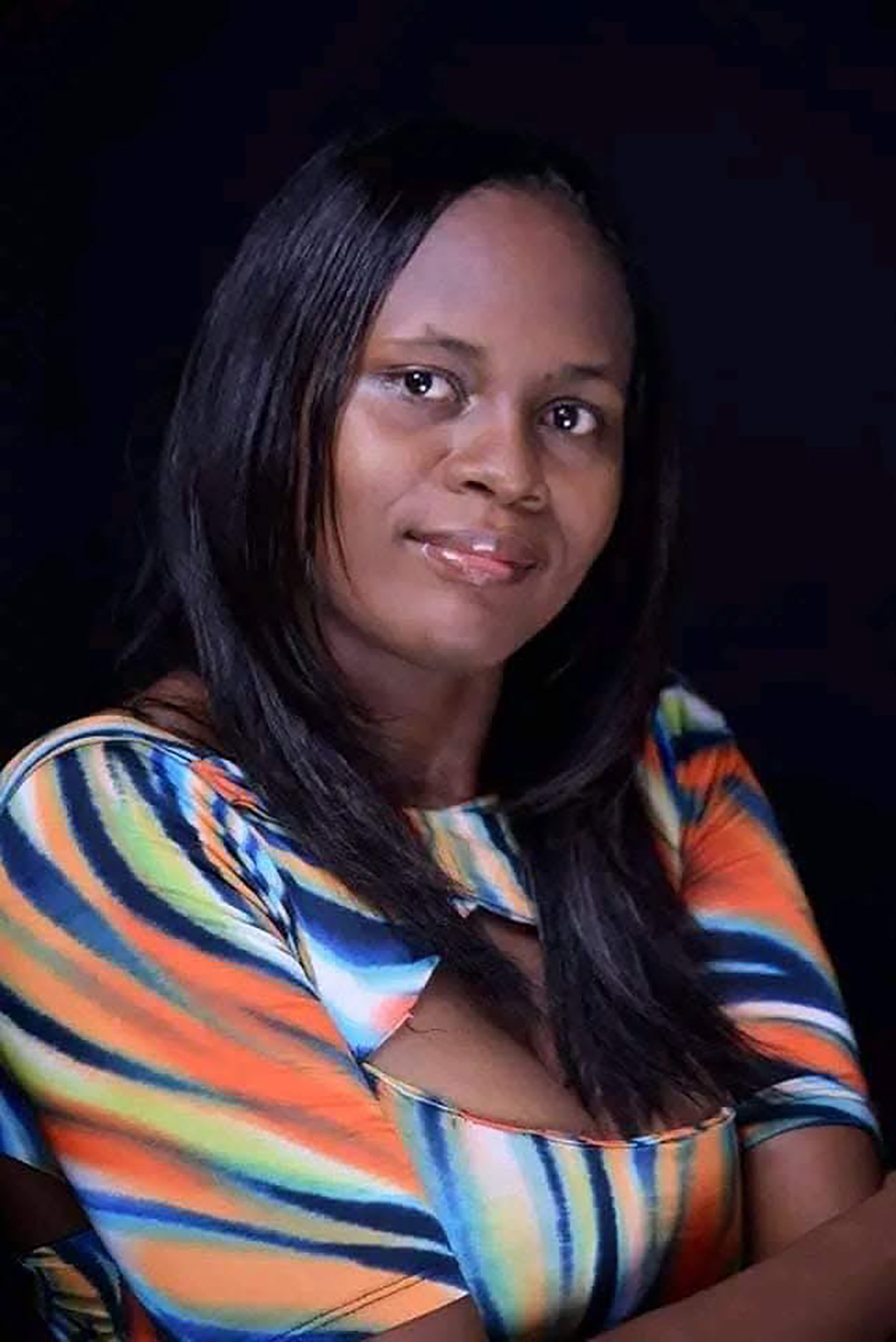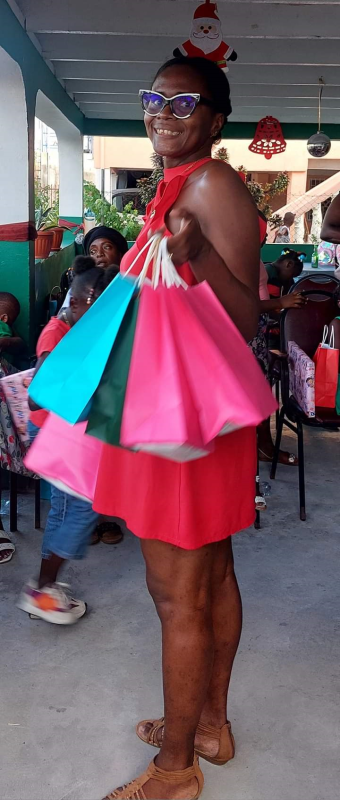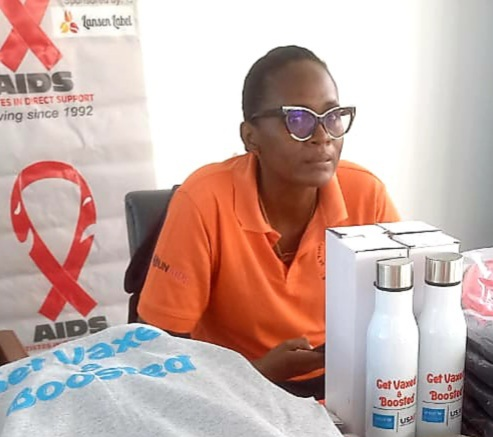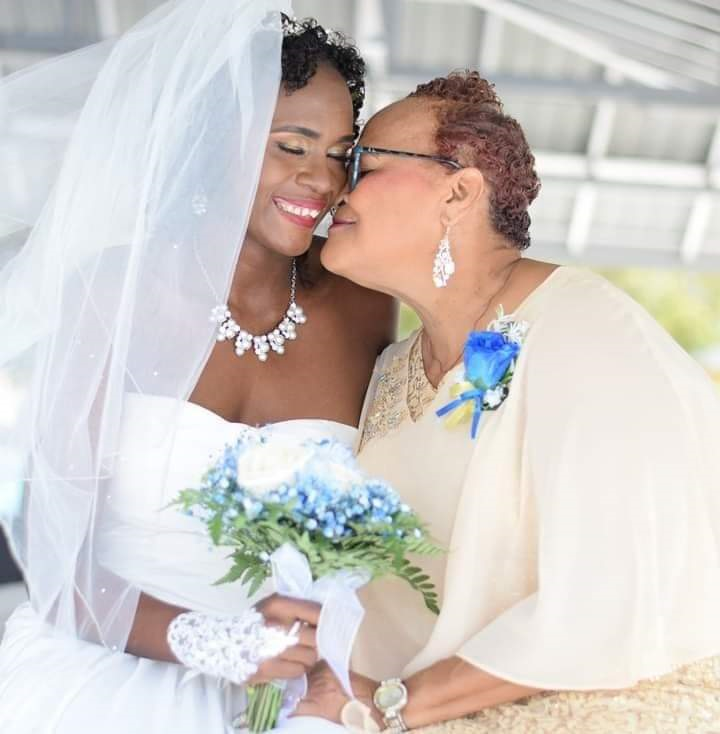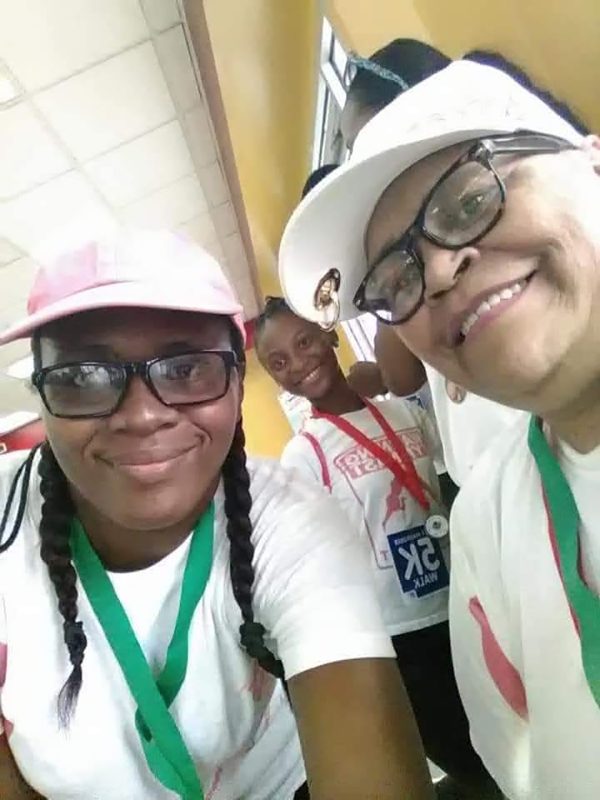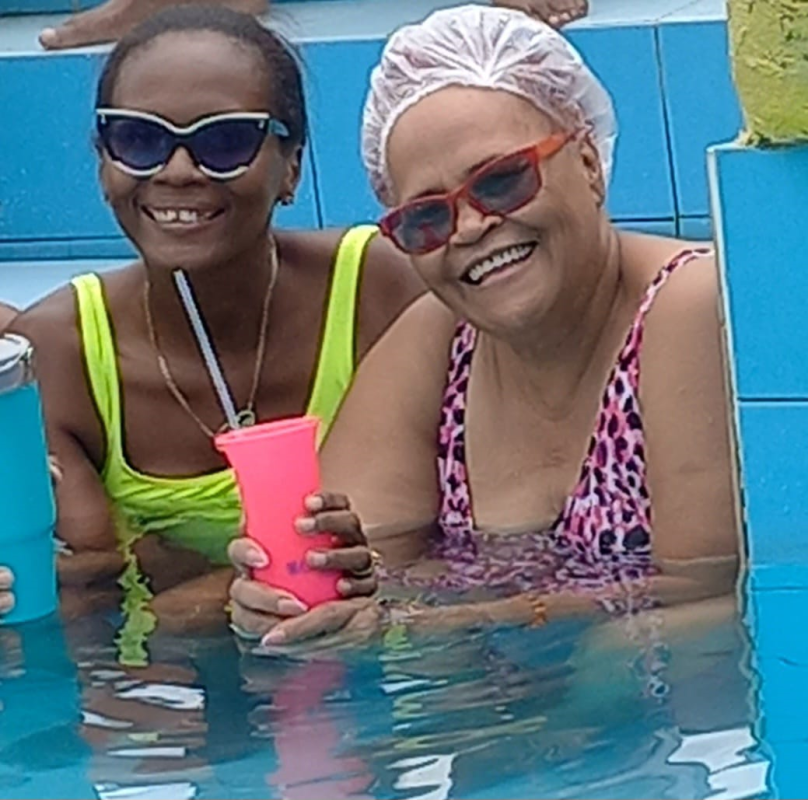The death of her daughter Sydney Benjamin to cervical cancer has led social advocate and cancer awareness ambassador for the Giving Hope Foundation Desiree Edghill to join the calls for early screening for cervical cancer and for parents to get their children vaccinated against the Human Papillomavirus (HPV) which causes cervical cancer.
“I’ve had my grandchildren vaccinated, because my last child died from cervical cancer. I don’t want anyone else in the family to die from it. I’ve been doing awareness in schools and parents don’t want their children vaccinated even though we have the vaccines available for it. Even though cervical cancer screening was available free of charge by the government last year, some people took the vouchers and didn’t go to get screened,” Edghill told Stabroek News during a recent interview.
January is observed internationally as Cervical Cancer Awareness Month and Edghill is leading several activities. “We are going to do our first tree wrapping with the Giving Hope Foundation this month. We are doing outreaches. The 4th of February is World Cancer Day, and we will be hosting a symposium on cancer awareness on that day. The activities we are doing this month will culminate with the symposium,” she said.
Throughout the year, also, Edghill will be focusing on awareness.
She noted it was important to be screened and vaccinated because cervical cancer is the third leading cause of death by cancer in Guyana. It is second to breast cancer, affecting women.
“We must make people aware that death by cervical cancer could be prevented,” she noted.
While conducting cervical cancer awareness, Edghill, who is also the head of Artistes in Direct Support, an organisation that supports people living with HIV, learned that women who are HIV positive are more likely to get cervical cancer.
“Can you imagine someone whose immune system is already compromised because of HIV getting cervical cancer? It’s a double whammy. Sydney, who managed the support group of people living with HIV, encouraged everyone in the group to get screened for cervical cancer. They sent their results to her to verify they were screened,” Edghill added.
Benjamin was already diagnosed with cervical cancer when the government started the screening programme and according to Edghill, she did not want anyone to go through what she had gone through.
“The important thing is for women to get screened early. We have lots of HPVs, but the numbers 16 and 18 can lead to cervical cancer. We are doing vaccination in Guyana right now. It is not being bought into by parents for their children. I don’t know if it is because of all the politics surrounding the Covid-19 vaccines and they don’t want to hear anything about vaccines even though it can help,” she stressed.
Children, both boys and girls from nine years old, could have the vaccine. It is good for them to have it before they start to engage in sexual activities. When boys are infected, the HPV lives under the skin of their penis, especially if they are not circumcised. Even though boys cannot get cervical cancer, they can pass on the HPV girls who can develop cervical cancer.
Edghill was elected the cancer awareness ambassador in October last year for the Giving Hope Foundation, which was founded nine years ago by oncologist Dr Latoya Gooding.
About a month after she was at that launch, Edghill, a cancer survivor for seven years now, was diagnosed with cancer.
The Giving Hope Foundation provides care and support for people living with cancer. It supports families, cancer survivors and those on treatment. It sponsors events and outreaches. It also assists with prosthetics including breast prosthetics. It has a cancer support group with a membership of about 80.
As ambassador, Edghill works with a committee that comprises members who were nominated alongside her as ambassador but who were not elected to the position.
Losing Sydney
Benjamin was 38 years when she was diagnosed with Stage 3C cervical cancer in January 2024 and died in September.
“We did everything we could to save her, but she didn’t make it. Most times with cervical cancer the symptoms won’t show up until the later stages. This is just one of the reasons why women need to screen early. You don’t know you have it and by the time you start to get symptoms, like heavy bleeding and abdominal pains, you’re already at Stage 3 at which accessing immediate treatment might be difficult,” she said.
Treatment includes external radiation with chemotherapy followed by brachytherapy known as internal radiation.
“I also walked my child through her treatment. I sat with her through every chemo, sat outside while she was on radiation in Suriname, so I have first-hand experience,” Edghill said. When Benjamin was diagnosed there was no brachytherapy in Guyana.
Edghill noted that at the cancer gala held in October 2024, Minister of Health Dr Frank Anthony announced that brachytherapy was soon to be offered in Guyana so that patients would not have to go abroad for that treatment.
Benjamin was diagnosed by a doctor from the USA who was part of a team in Guyana doing cancer outreach. He recommended that as soon as she completed the external radiation in Guyana to follow up immediately with the internal radiation.
Benjamin did the brachytherapy in Suriname over a three-week period. The brachytherapy was one day a week and one day for chemotherapy to reinforce the work of the radiation.
At the end of the treatment, she was declared free of the cancer cells.
“That can happen. You can be cured once you get the treatment in a timely manner,” Edghill noted.
Edghill and Benjamin returned to Guyana at the end of February and Benjamin appeared to be recovering well. A few months later she began getting abdominal pains. She did an MRI scan which showed a mass in her colon. She started getting ill. She was scheduled to do a colonoscopy on a Monday in September, but she died on the Saturday, two days before.
“As a layman, I don’t think she was yet healed from the internal radiation burns. External burns heal faster than internal. I was with her in Suriname, and I felt like it was happening to me. I did chemotherapy but not radiation. I hadn’t had that experience with the burns. I could only imagine what she went through. The side effects included vomiting and diarrhoea. She suddenly became allergic to peanuts, which she loved,” Edghill said.
“I don’t think she had the will to live after the radiation treatments. With cancer you must be strong. You must have the will to live. You must go through all this tough treatment. For instance, chemotherapy affects your breathing, and you can’t walk any distance. It affects your taste and appetite. The treatments wracked her body, and I don’t think it could have taken more radical treatment.”
An emotional Edghill who is still grieving the loss of her daughter said, “I try to tell young people to get screened early, so they don’t have to go through what my daughter went through. Having any type of cancer is rough. The treatment is rough. If you can prevent it, it’s the best thing you can do.”
Cancer survivor
When she was diagnosed with leiomyosarcoma, a rare uterine cancer, she did surgery and treatment overseas.
“It was in the early stage, 1A. I believe that if you see something or things happening that are different in your daily routine you need to check out why they are occurring. I was bleeding when I was menopausal,” she said.
She visited her doctor immediately and was diagnosed with cancer.
“Radical hysterectomy and lymph node dissection were recommended for that. We didn’t have a gynae-oncologist in Guyana at the time. Now I’m free of cancer. Of course I had to go every three months, then six months and now every year for check-ups,” she said.
“Sydney, the youngest of my six children, I found, was the strongest of the children based on when I was diagnosed with cancer. When I had to do surgery and treatment, I called the children together so they could decide who would accompany me. She decided she was the best person to do so. They all agreed.
“When she was diagnosed, I saw her strength come out again and that helped me to stay by her side without breaking down in front of her. Although she was not feeling well, she never said she didn’t want to go for treatment. You don’t want your children to be ill. It was an emotional roller coaster. If she saw me getting emotional, she’d say, ‘Mom, don’t cry. I’m going to be okay’.
“In Suriname, we’d rented an apartment. I’d go outside in the yard and cry when she’d gone to sleep.
“I approached the government and asked for support. The brachytherapy in Suriname was over US$4,600. I got $1 million from the Ministry of Health for her treatment. For the Suriname treatment we had to have money for flight, accommodation and meals, so there were additional costs apart from the treatment.”
Edghill had strong support from people who were close to her. Trans Guyana sponsored the tickets. Other people gave money for a week of accommodation and meals.
“That support system is so important when you’re going through these things. I am grateful and thankful,” she said.
When Edghill was diagnosed with cancer she said she was resigned to whatever came her way because, as she said, she had already lived her life.
“It was hard to see Sydney go because she was 38, the mother of two children and a wife. They say life begins at 40 and she had not begun to live that life. She was also that go-to child, who, if anything happened, she was there,” Edghill said.
“After her death, I have a little more passion for doing cancer awareness. I may be selfish but it’s my daughter who motivates me.”
Edghill wants to run a cancer prevention programme in her daughter’s memory.
“We have cancer support programmes. We have cancer treatment programmes. We need to talk more about prevention. We don’t want people to get cancer…,” she said.
“Usually, it’s Pinktober in October for breast cancer. We don’t have anything for cervical cancer so we will try to bring awareness to it.”
Benjamin liked giving toys to children and last Christmas Edghill created a Sydney’s Corner in which 300 gifts were given and included children living with cancer. “I did it in collaboration with the organisation, Remember We Care. I was able to honour her wish to include children with cancer. I played Mrs Claus,” she said.
“I’m still healing, and I post how I feel on social media. What made me continue doing it is that quite a few people who met me on the road or messaged me said I’ve helped them to heal from the loss of their loved ones to cancer. I am going to continue to do it as long as I have to.”
The International Agency for Research on Cancer shows that a single dose of vaccine against HPV offers robust protection against persistent infection with HPV even 15 years after the vaccine was administered. The World Health Organisation launched the Cervical Cancer Elimination initiative in November 2020 with the goal of eliminating cervical cancer as a public health problem by 2100. To achieve this all countries must reach and maintain an incidence rate of fewer than 4 new cases of cervical cancer per 100,000 women a year. This would require 90 percent of girls fully vaccinated with the HPV vaccine by the age of 15, 70 percent of women screened using a high-performance test by the age of 35 and again by the age of 45 and 90 percent of women with pre-cancer treated and 90 percent of women with invasive cancer, managed.
